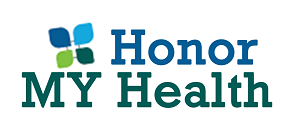
Primary medical care plays a vital role in shaping effective preventative health strategies. This approach focuses on the long-term well-being of individuals through early detection, consistent monitoring, and holistic treatment plans. The goal is not only to treat illnesses but also to prevent them from occurring in the first place.
Early Detection and Risk Assessment
A core component of primary medical care is the early identification of health risks. Through routine screenings and regular check-ups, healthcare providers can spot early signs of potential health issues, such as diabetes or hypertension. This proactive approach enables timely interventions, which can prevent the development of more serious conditions later on. By assessing an individual’s medical history, lifestyle factors, and family history, primary care providers can offer personalized advice tailored to each patient’s specific needs.
Ongoing Monitoring and Care
Regular visits to a primary care physician ensure that health concerns are continuously monitored. This ongoing relationship allows for adjustments to treatment plans and lifestyle recommendations as needed. Unlike episodic care, where treatment is often reactive, primary medical care provides a more consistent and preventative approach. This continuity helps patients manage chronic conditions effectively, reducing the risk of complications and hospitalizations.
Patient Education and Health Promotion
Education is a powerful tool in preventative health. Primary medical care includes educating patients on the importance of maintaining a healthy lifestyle. This can involve offering guidance on nutrition, exercise, and mental well-being. Healthcare providers also inform patients about vaccinations and screenings, encouraging them to take an active role in their health. Educated patients are more likely to follow preventive measures, such as getting flu shots or participating in health screenings, which can lead to early identification of diseases.
Collaboration with Specialists
Primary care providers often work alongside specialists to manage patients’ health more comprehensively. This collaboration ensures that patients receive the appropriate care and that preventative strategies are integrated across different healthcare domains. For instance, a primary care physician may refer a patient to a cardiologist for heart health concerns but will continue to oversee their overall well-being.
Improving Access to Primary Medical Care Services
Having access to primary medical care improves overall health outcomes by reducing barriers to treatment. When individuals have a primary care provider they trust, they are more likely to seek care early rather than waiting until an issue becomes urgent. This accessibility not only reduces healthcare costs but also enhances the effectiveness of preventative care. People who lack a regular healthcare provider may delay seeking care, increasing the risk of undiagnosed conditions that could have been prevented.
Personalized Preventative Strategies
One of the most significant benefits of primary medical care is the ability to develop personalized health strategies. Providers consider an individual’s unique health profile, lifestyle, and environment when recommending preventative measures. This personalized approach ensures that the recommended strategies are both relevant and practical. For example, a person at high risk for osteoporosis due to family history may be advised to undergo bone density testing earlier than the general population, while someone at risk for skin cancer may receive more frequent screenings.
Conclusion
Through consistent engagement with primary care providers, individuals are empowered to take control of their health. Early interventions, ongoing monitoring, and personalized care plans are essential to preventing the onset of many common health conditions. As primary medical care evolves, its role in shaping preventative strategies will only continue to grow, offering significant benefits for both individuals and the healthcare system as a whole.

